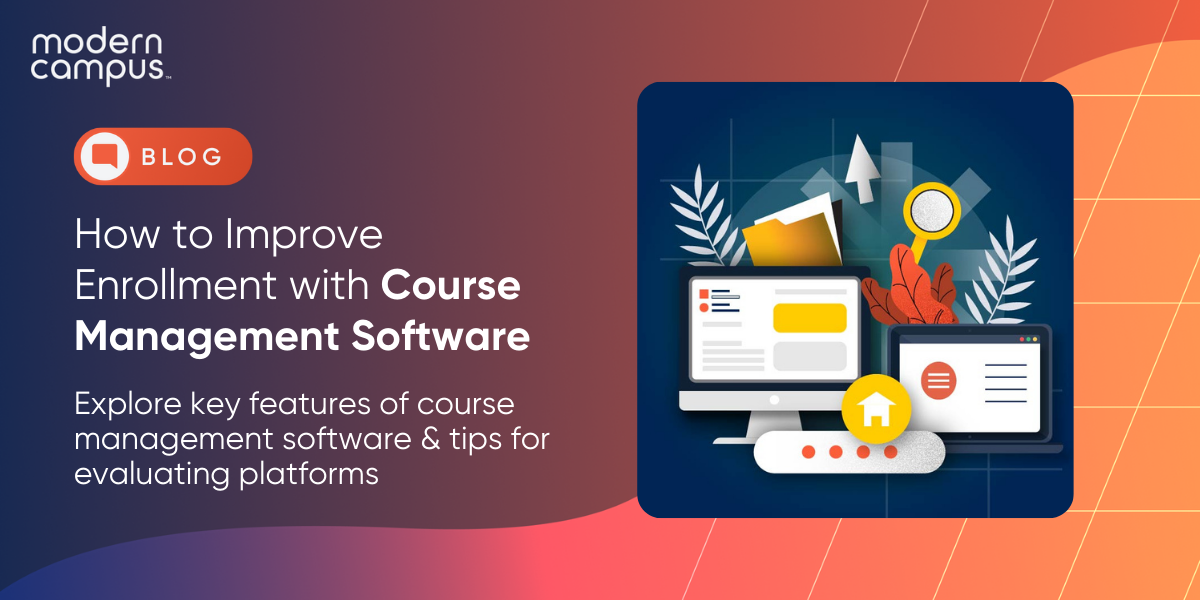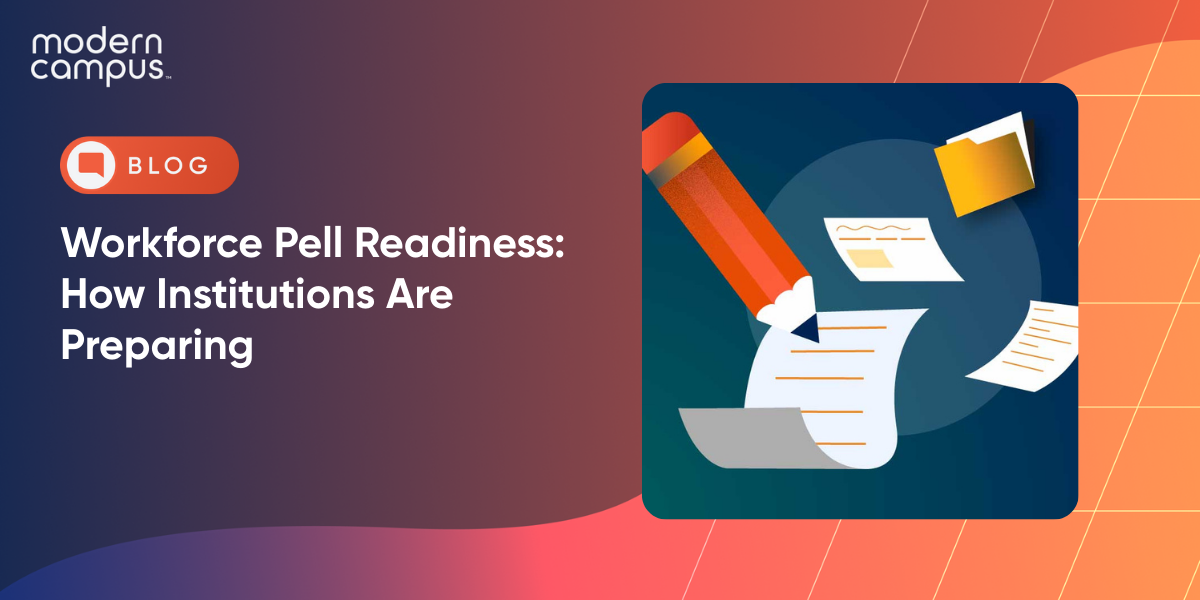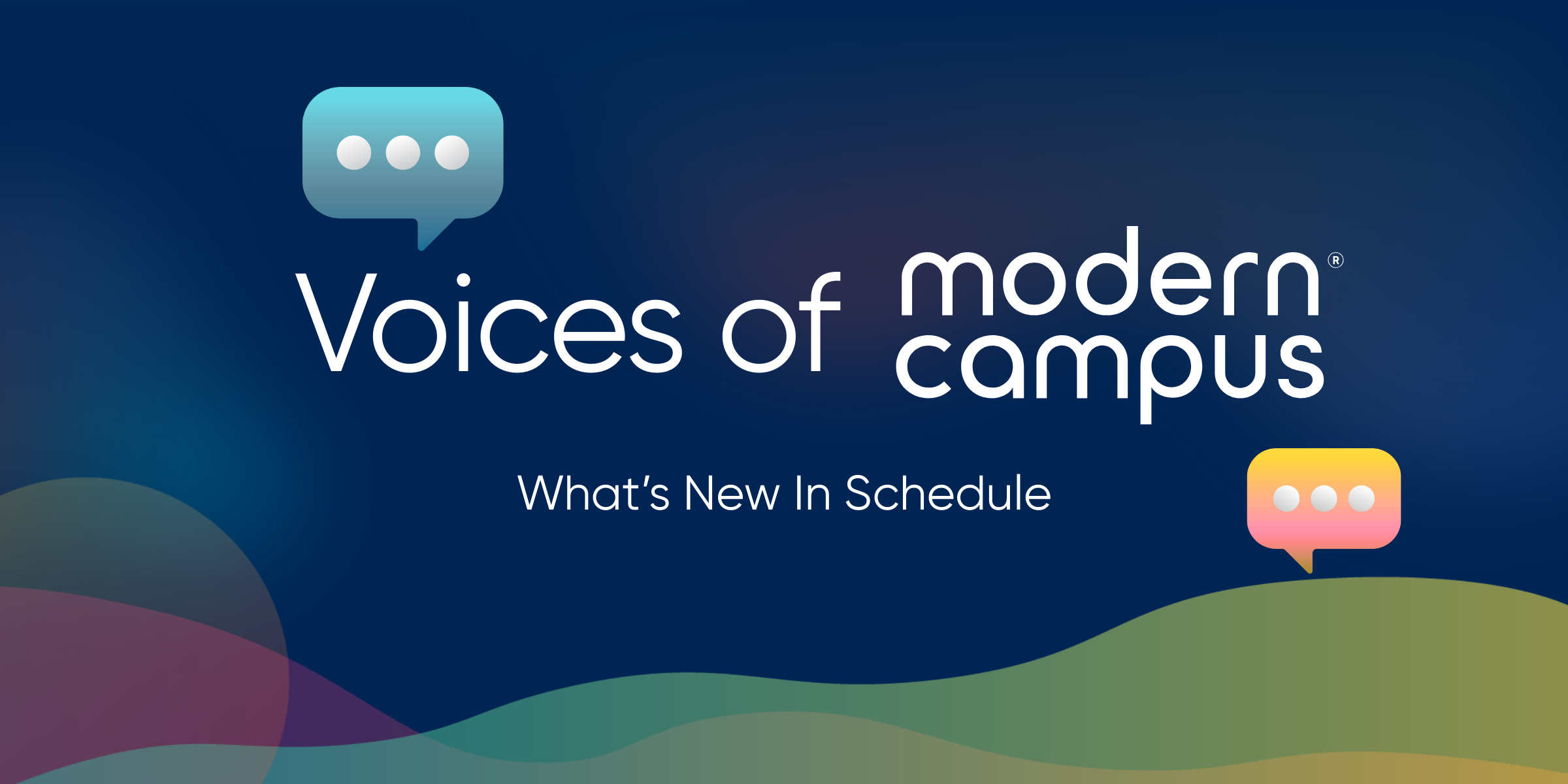How to Improve Enrollment with Course Management Software
In higher education technology, course management software plays a pivotal role in orchestrating the complex symphony of academic administration. It serves as the backbone of online course platforms, facilitating the seamless integration of administrative tasks, communication channels and learning management systems.
In this blog post, we’ll dive into the intricacies of course management software, exploring its importance, key features, and factors to consider when choosing the right platform.
What is Course Management Software?
Course management software, also known as enrollment management software, is a comprehensive digital solution or suite designed to streamline various tasks involved in academic administration. It serves as the nerve center of online course platforms, offering functionalities that span from enrollment and scheduling to assessment and grading.
The Importance of Course Management Software
Before switching from a legacy solution to a digital one for managing enrollment, this section of the blog post is for you. Below are some key benefits to adopting course management software.
Streamlining Administrative Tasks
One of the primary functions of course management software is to streamline administrative tasks by minimizing manual intervention and optimizing operational efficiency. From enrollment processes and course scheduling to resource allocation and reporting, this software automates mundane tasks, allowing academic institutions to focus on delivering quality education.
Enhancing Communication
Effective communication is the lifeblood of any educational institution, and course management software serves as a catalyst for fostering seamless communication channels. Through integrated messaging systems, announcement boards and discussion forums, stakeholders can effortlessly exchange information, strengthening collaboration and engagement within the academic units of an institution.
Facilitating Learning Management
By providing a centralized platform for course materials, assignments, and assessments, course management software empowers educators to create dynamic and interactive learning experiences. From multimedia content delivery to real-time feedback mechanisms, this software facilitates the evolution of traditional pedagogy into immersive digital learning environments.
Key Features of Course Management Software
User-Friendly Interface
A hallmark of effective course management software is its user-friendly interface, which is designed to accommodate users of varying technical proficiencies. Intuitive navigation, clear layouts and customizable dashboards ensure that educators and students can effortlessly navigate the platform, maximizing productivity and engagement.
Centralized Content Management
Centralized content management is another critical feature of course management software, as it enables educators to upload, organize and distribute course materials with ease. From lecture slides and multimedia resources to interactive modules and assignments, this feature empowers educators to curate immersive learning experiences tailored to their students’ needs.
Assessment and Grading Tools
Course management software offers robust assessment and grading tools, allowing educators to efficiently create, administer and evaluate assignments and exam. From automated grading functionalities to customizable rubrics and analytics dashboards, this feature streamlines the assessment process, providing actionable insights to educators and students.
Communication Tools
Effective communication lies at the core of successful academic collaboration, and course management software provides many communication tools to facilitate seamless interaction. From integrated messaging systems and discussion forums to real-time chat functionalities, this feature fosters meaningful dialogue and collaboration.
Personalized Learning Experiences
Course management software empowers educators to create personalized learning experiences tailored to the unique needs and preferences of each student. Through adaptive learning algorithms, personalized feedback mechanisms and analytics-driven insights, this feature enhances student engagement and academic outcomes, driving continuous improvement and growth.
Factors to Consider When Choosing Course Management Software
Scalability
Scalability is an especially crucial consideration for institutions experiencing growth or planning for future expansion. Your software should be capable of accommodating increasing numbers of users, courses and resources without compromising performance or user experience.
Scalability doesn't only mean being growth-proof; it also means being future-proof. Technology is evolving rapidly. When you invest in software, you want to ensure that it is updated regularly and capable of integrating with the tech stack your institution may have in the future. So, considering the solution provider’s expertise in the higher ed industry and its vision can also help you understand the scalability of the solutions they offer.
Integration Capabilities
Integration capabilities are essential for seamless interoperability with existing academic systems and third-party applications. Your software should support integration with student information systems (SIS), learning management systems (LMS) and other educational technologies, ensuring a cohesive ecosystem that enhances productivity and efficiency.
Valdosta State University, for example, found that their seamless integration of Modern Campus Navigate with their existing SIS cut down student frustration while improving staff efficiency and success..
Cost-Effectiveness
Cost-effectiveness is an especially paramount consideration in an era of constrained budgets and fiscal scrutiny. Your course management software should offer transparent pricing models, scalable licensing options and tangible return on investment, aligning with the institution's budgetary constraints and long-term financial goals.
However, it wouldn’t be wise to make cost-effectiveness your only priority. That could lead you to picking — and getting stuck with — a vendor that does not deliver on its promise. Take Carl Sandburg College as an example. Before switching to Modern Campus Catalog, the college’s registrars got stuck in “a very unfun process” of having to go back and forth with their vendor to make changes to their catalog.
User Support and Training
Your provider should offer robust support channels, including documentation, tutorials and responsive customer service, to assist users in overcoming challenges and maximizing the software's potential.
Any piece of technology with advanced features is only as good as tech-savvy as the person who uses it is. Higher education technology is no exception. Therefore, having your staff well-trained by the vendor and having the vendor support readily available when you need it is crucial to your success with the software. Read the service terms carefully and discuss the promised SLAs with your vendor before signing an agreement.
Student Experience and Student Engagement
Though your primary reasons for adopting course management software could be to streamline academic operations and improve staff efficiency, keeping student experience at the center of your purchase decision is paramount. If the solution is difficult for students to navigate and engage with, it won’t be worthwhile.
Good course management solutions not only make it easier for your staff to manage and streamline the processes, but they also help improve student experiences and engagement.
Want to leverage stress-free course management software?
Discover why Angela Snow, Registrar of Carl Sandburg College calls Modern Campus Catalog “a no-stress catalog”.
Ready to consider solutions? Check out our free guide.
Last updated: May 31, 2024




